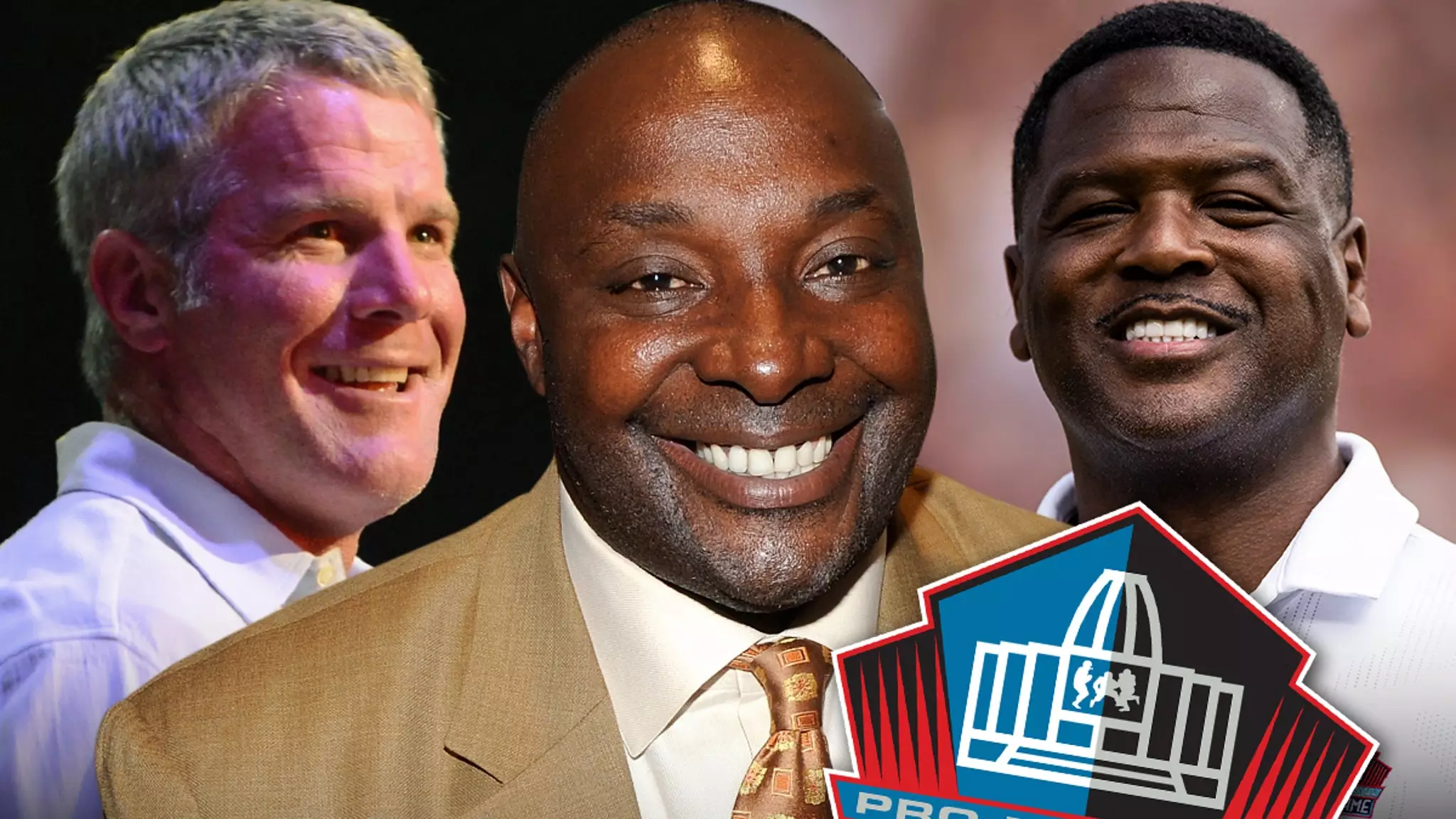In the world of professional football, few recognize the impact a player can have within a short span more than the iconic Green Bay Packers duo, Brett Favre and LeRoy Butler. This week, during interviews with TMZ Sports, both legends passionately advocated for Sterling Sharpe, a former wide receiver whose candidacy for the Pro Football Hall of Fame has ignited fierce debate. Their unequivocal support underscores the notion that Sharpe’s exemplary contributions to the sport remain undervalued despite his premature retirement.
Favre, one of the most revered quarterbacks in NFL history, classified Sharpe as “unguardable”—a testament to the receiver’s exceptional skills. He emphasized that, although Sharpe may not have possessed the physical attributes often associated with greatness in football, his intelligence and football acumen set him apart from his peers. Similarly, Butler accentuated that had Sharpe’s career not been marred by injuries, he would undoubtedly be regarded as the greatest of all time—a claim that carries substantial weight when voiced by a Hall of Fame safety.
The Numbers Speak for Themselves
Despite a career that lasted just seven years due to ongoing health challenges, Sharpe compiled impressive statistics that illustrate his prowess. Over 112 games, he amassed 595 receptions, accumulating 8,134 receiving yards and scoring 65 touchdowns. His achievements included three All-Pro honors and five selections to the Pro Bowl, which paint a portrait of a player who consistently delivered under pressure. The numbers not only reflect individual excellence; they also signal intuitive synergies with various quarterbacks and a stellar understanding of the game’s complexities.
The statistical arguments in favor of Sharpe extend beyond mere totals; they encapsulate his resilience in the face of adversity. He made his mark in an era characterized by formidable defenses and evolving offensive schemes, and yet he consistently emerged as a reliable target. That his career was abruptly truncated lends his achievements a tragic nuance, prompting advocates like Favre and Butler to question why he hasn’t yet been awarded a place among football’s elite in Canton, Ohio.
As Sharpe vies for one of the coveted spots among this year’s Hall of Fame finalists, the timing could not be more poignant. The coming Pro Football Hall of Fame induction ceremonies coincide with the Super Bowl, a time when football attention peaks. This duality provides an opportune moment for advocates to rally support and reinstate Sharpe’s legacy in the national conversation surrounding Hall of Fame qualifications.
Interestingly, Sharpe’s former head coach, Mike Holmgren, is also among the nominees, presenting an exceptional narrative of interconnected history within the Packers organization. Favre expressed hope that both Sharpe and Holmgren would achieve induction, emphasizing not just the personal significance but the broader recognition of the Packers’ influential legacy in NFL history.
The collective voices of advocates such as Favre and Butler reinforce that Sterling Sharpe’s career deserves recognition that transcends his numbers. They argue that exceptional skill, coupled with intelligence and a brief yet impactful career, merit a spot in the Hall of Fame. As the voting committee deliberates, football enthusiasts hope that Sharpe’s enriching story and contributions will be adequately honored—a narrative that is, undeniably, worth celebrating in the pantheon of football greats.


Leave a Reply